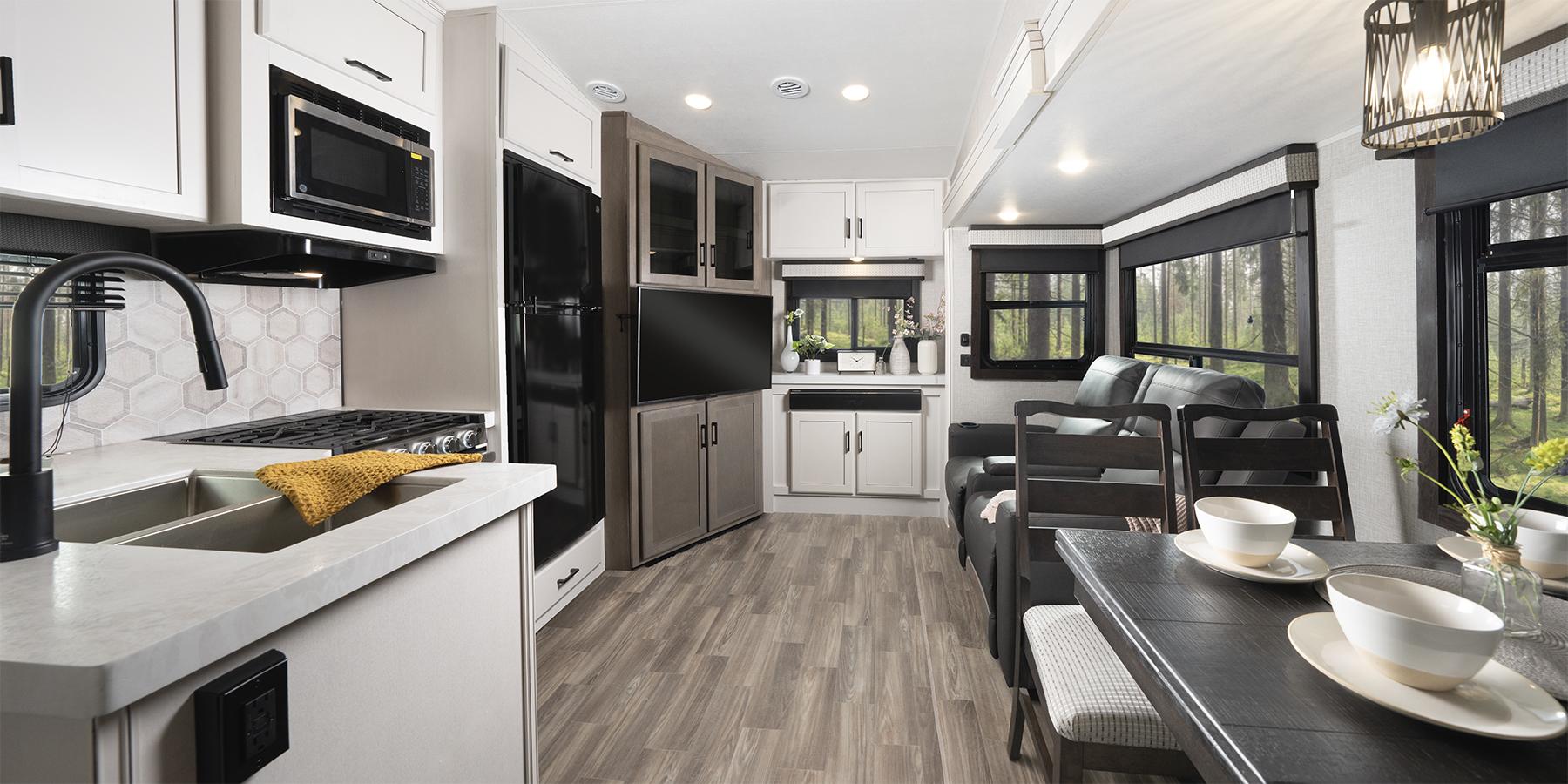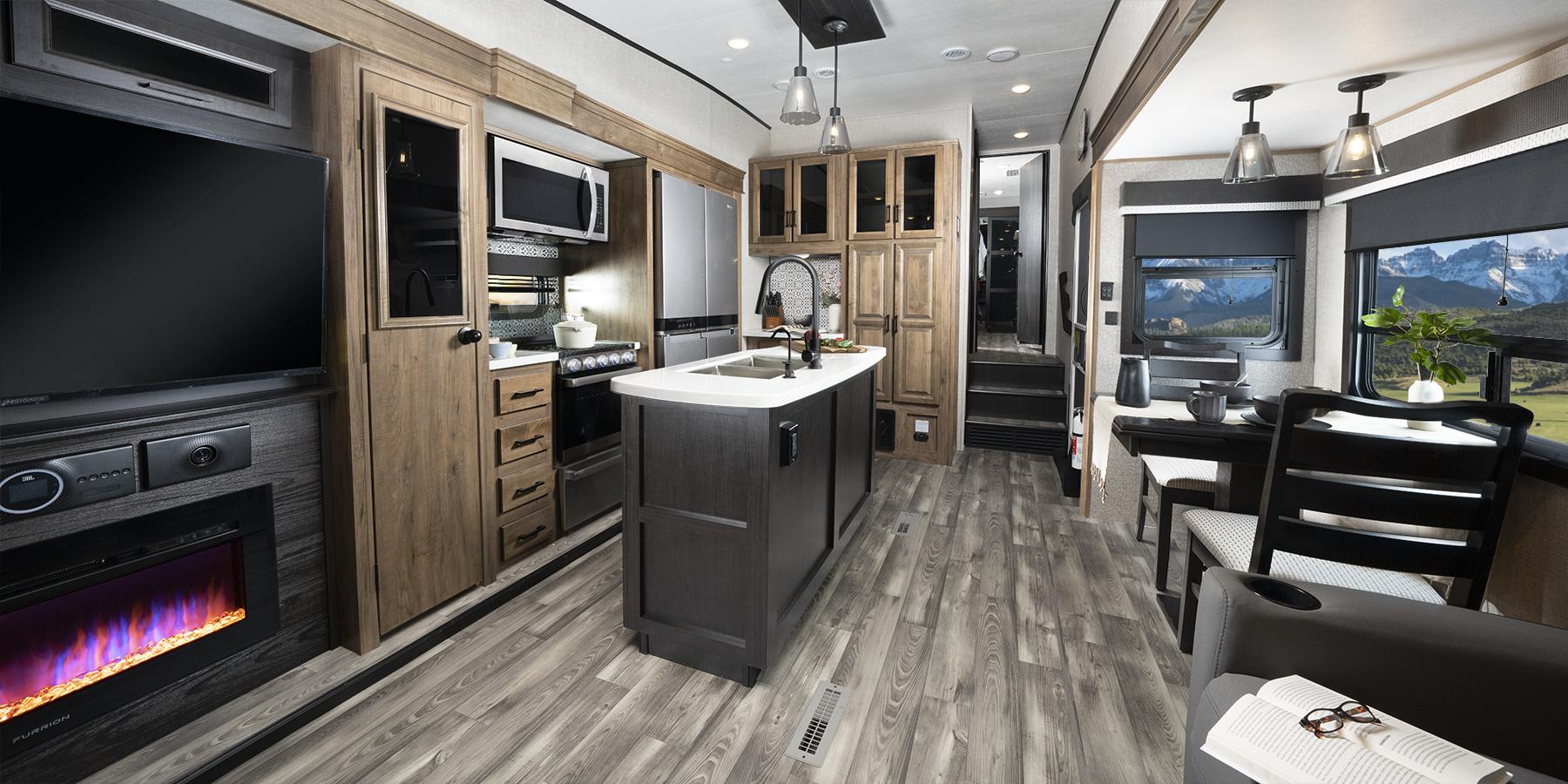Fifth Wheel RVs: Technical Aspects & Safety Tips You Need to Know
When it comes to RV living or traveling, few options offer the comfort, stability, and spaciousness of a Fifth Wheel trailer. Whether you're a weekend warrior or planning full-time RV living, understanding the technical aspects and safety considerations of Fifth Wheels can enhance both your experience and your peace of mind.
At KunesRV, we’re not just here to sell RVs — we’re here to help you travel smarter, safer, and with confidence. Let’s dive into what makes Fifth Wheels a popular choice, and what you need to know to tow them safely.
What Is a Fifth Wheel Trailer?
A Fifth Wheel is a towable RV that connects to a pickup truck using a special hitch mounted in the bed of the truck, over the rear axle. This hitching design gives Fifth Wheels a distinct advantage over traditional bumper-pull travel trailers: better stability, smoother towing, and higher weight capacity.

Technical Aspects of Fifth Wheel Trailers
1. Hitching System
The defining feature of a Fifth Wheel is its hitch:
- Mounted in the truck bed, directly over the rear axle.
- Designed for pivot and articulation, allowing better maneuverability.
- Requires a pickup truck (typically ¾-ton or larger) for proper towing.
Pro Tip: Your truck must match the towing and payload capacity required by your Fifth Wheel. Always check the GVWR (Gross Vehicle Weight Rating) before purchasing or hitching.
2. Weight Distribution
The placement of the hitch over the truck’s axle means:
- Better weight distribution between truck and trailer.
- Less sway when driving, especially in windy conditions or on uneven terrain.
- Improved braking and handling performance.
3. Living Space and Layout
Because Fifth Wheels are larger and have a split-level design, they often include:
- Multiple slide-outs for added space.
- Residential-style kitchens, bathrooms, and bedrooms.
- Superior ceiling height and storage.
4. Towing Requirements
Fifth Wheels are heavier than most other RVs, so:
- You'll need a diesel or heavy-duty truck (like a Ford F-250/350, Ram 2500/3500, etc.).
- You may require additional brake controllers, suspension enhancements, or a dually truck depending on your trailer's weight.
Fifth Wheel Safety: What Every RVer Should Know
Whether you’re new to Fifth Wheels or a seasoned traveler, safety should always be a priority.
1. Proper Hitch Installation
- Ensure your hitch is correctly installed and torqued to spec.
- Regularly inspect hitch components for wear or rust.
- Double-check kingpin engagement before every trip.
2. Weight Management
- Never exceed your truck’s towing capacity or your RV’s weight ratings.
- Balance your load to prevent sway or undue stress on the trailer.
- Use a tongue weight scale or visit a certified weigh station.
3. Brakes and Lights
- Test your trailer’s brake system before hitting the road.
- Verify that all lights and signals are functioning properly.
- Consider investing in a trailer brake controller if your vehicle doesn’t already have one.
4. Routine Maintenance
- Check tires for proper inflation and tread wear.
- Inspect the wheel bearings, suspension, and landing gear.
- Keep up with scheduled roof sealing and undercarriage inspections.
5. Driving Techniques
Make wide turns — your Fifth Wheel tracks inside your truck’s path.
Watch your height clearance — most Fifth Wheels range between 11–13 feet tall.
Practice in open areas before attempting tight maneuvers or narrow roads.
Final Thoughts: Why Choose a Fifth Wheel?
Fifth Wheels are a top choice for RVers seeking space, luxury, and towing stability. With the right technical knowledge and safety practices, you can enjoy the road ahead without surprises.
At KunesRV, we offer a wide selection of Fifth Wheel trailers and a team of experts ready to help you match the perfect RV with your lifestyle and towing setup. Stop by one of our locations, or browse our inventory online today — and hit the road with confidence.


